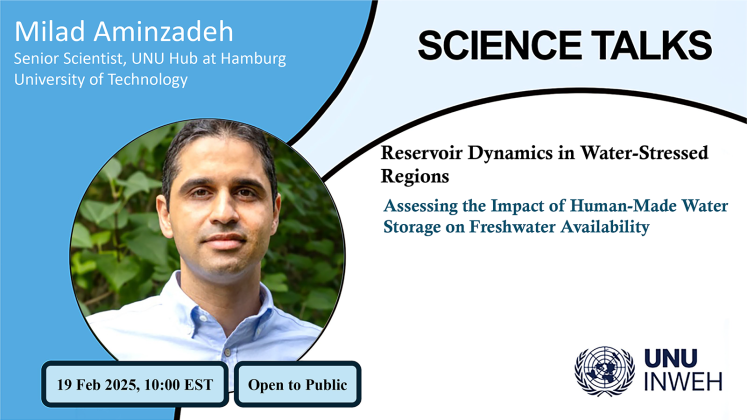Surface water storages play a crucial role in supporting local water demands during dry spells. From small agricultural reservoirs to large dams, human-made water storages are vital for food security and poverty alleviation, particularly in water-stressed regions. However, a lack of reliable data on storage capacity and significant evaporative losses from reservoirs pose challenges for effective water management. As water demands increase in a warming climate, these uncertainties could exacerbate regional and transboundary water conflicts.
In this Science Talk, Dr. Milad Aminzadeh will discuss a mechanistic approach that integrates satellite remote sensing and physically based modeling to assess the extent of water storages and quantify their evaporative losses in water-stressed regions such as the Middle East and North Africa (MENA). His research highlights the significant influence of climatic and anthropogenic factors on water reservoirs and underscores the need to enhance storage efficiency. The findings provide valuable insights into the role of water storage infrastructure in resource planning and management.
Speaker

Dr. Milad Aminzadeh
Senior Scientist, UNU Hub at Hamburg University of Technology






